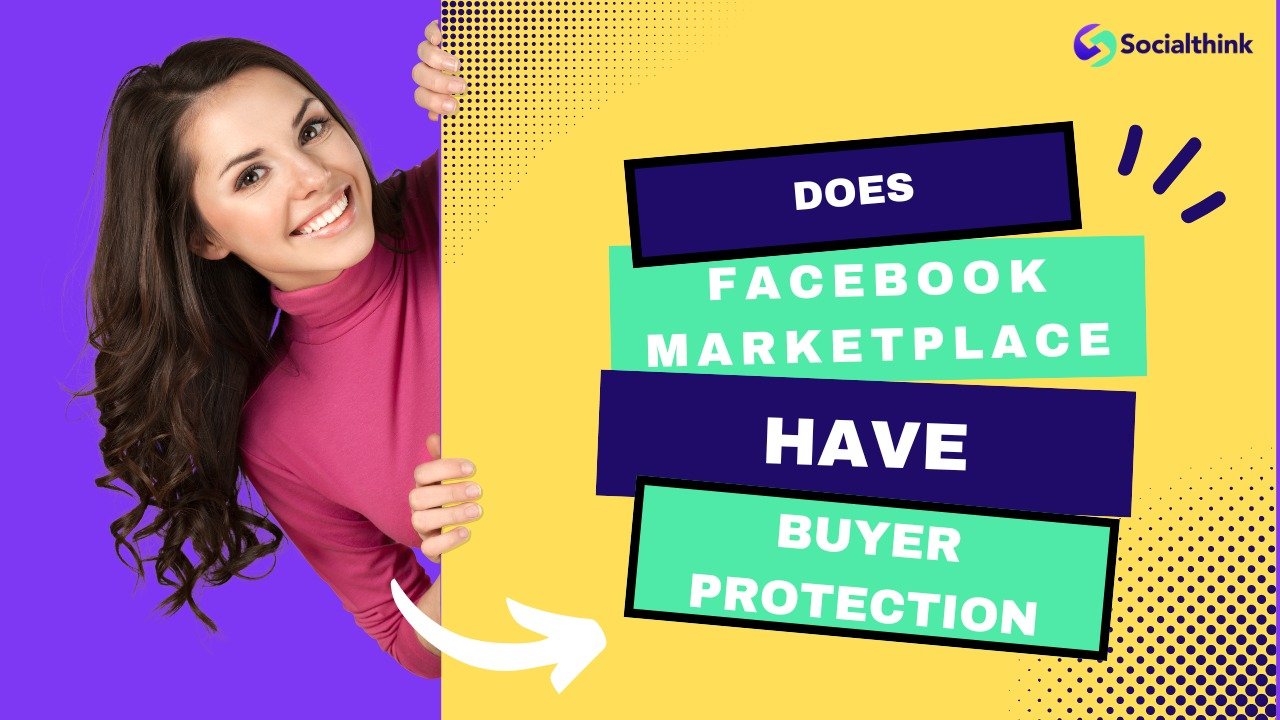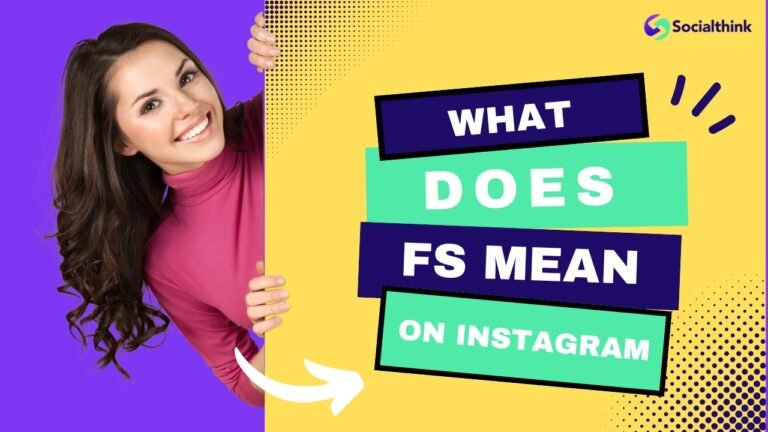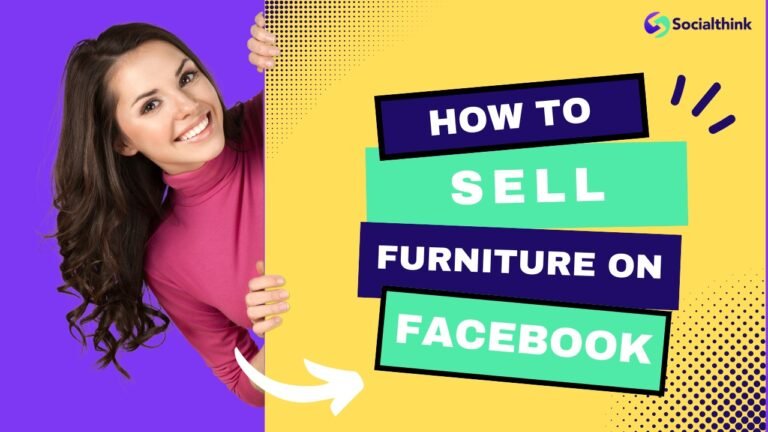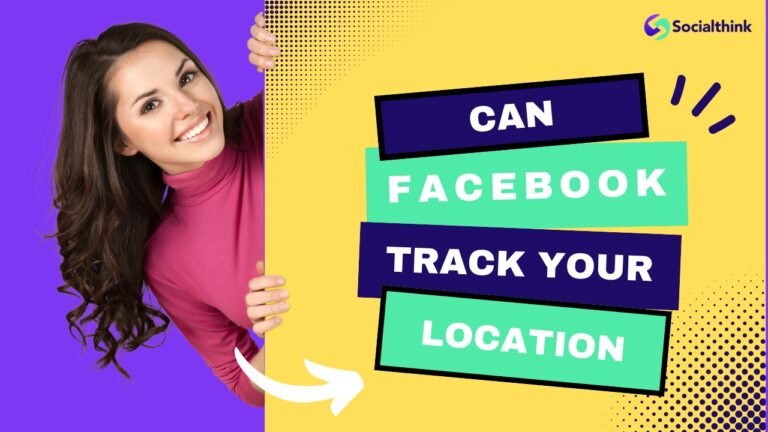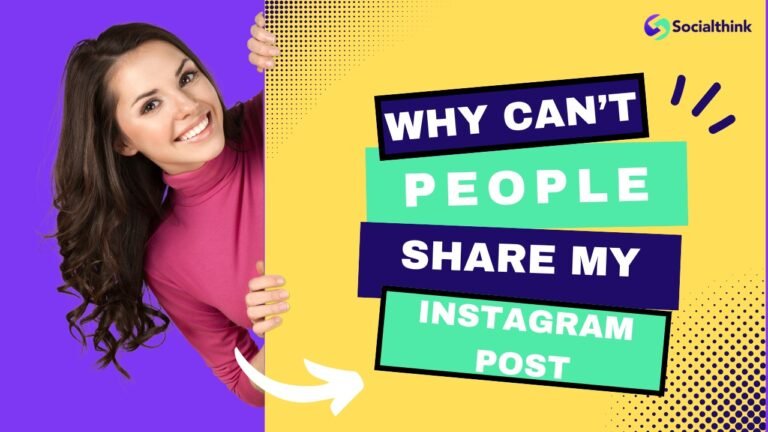Does Facebook Marketplace Have Buyer Protection? A Complete Guide
When buying and selling on Facebook Marketplace, it’s important to understand what protections are in place. At Social Think, we provide expert insights to help businesses and individuals navigate the world of social commerce safely and effectively.
Facebook Marketplace has become a popular platform for local buying and selling, with over 1 billion monthly users.
However, its popularity has also attracted scammers looking to take advantage of unsuspecting buyers and sellers.
In this article, we’ll dive into the details of Facebook Marketplace’s buyer protection policies to help you transact with confidence.
Does Facebook Marketplace Have Buyer Protection?
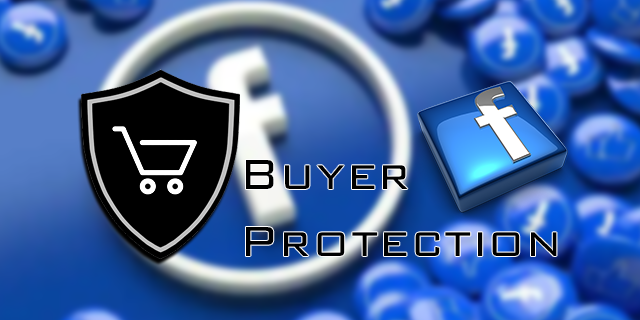
Yes, Facebook Marketplace does offer limited buyer protection for eligible purchases made through the on-platform checkout with Facebook Pay. However, many transactions, such as local pickups, cash payments, and purchases over $2000 are not covered.
Purchase Protection is free and automatic for eligible orders. Buyers can request a refund if:
- The order never arrived
- The item is damaged or significantly different than described
- The purchase was unauthorized
- The seller’s account was removed by Facebook
If a dispute arises, Facebook will review the claim and may issue a refund if the eligibility criteria are met. Sellers also have the opportunity to respond to disputes before a final decision is made.
What Are The Different Types of Scams on Facebook Marketplace? Most Common Scams on FB
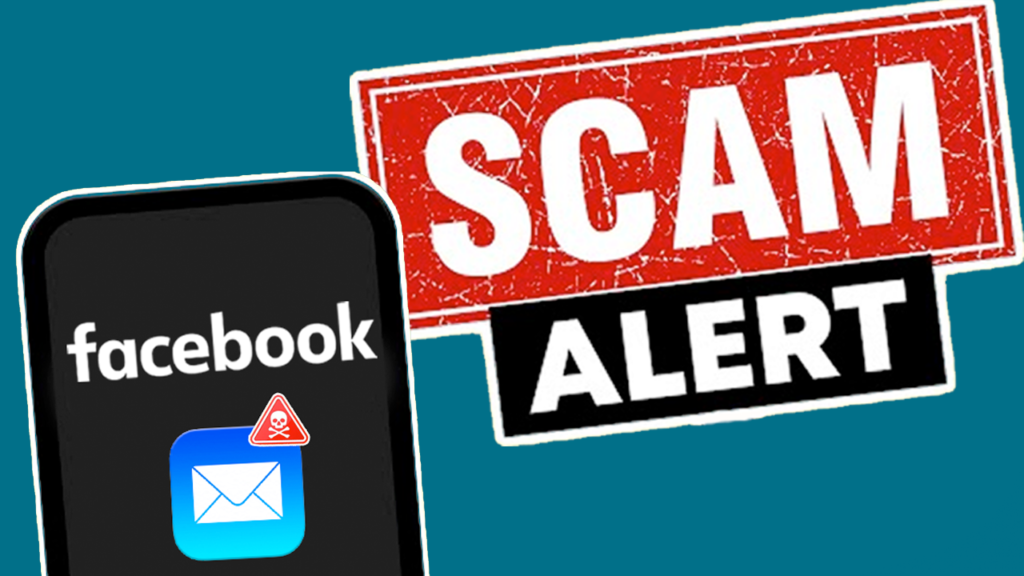
Before we discuss Facebook’s buyer protections, let’s review some of the most common scams on the platform:
Buyer Scams
- Fake payment scams – Buyers send fake payment confirmations or receipts
- Overpayment scams – Buyers “accidentally” overpay and request a partial refund
- Counterfeit item scams – Buyers claim the item is fake and demand a refund
- Unauthorized purchase scams – Buyers claim their account was hacked and dispute the charge
Seller Scams
- Non-delivery scams – Sellers never ship the item after receiving payment
- Misrepresented item scams – The item is significantly different than described
- Bait and switch scams – Sellers claim the item is no longer available and offer a lower quality substitute
- Fake seller profiles – Scammers create fake profiles using stolen photos and information
Why is Facebook Marketplace Full of Scammers?
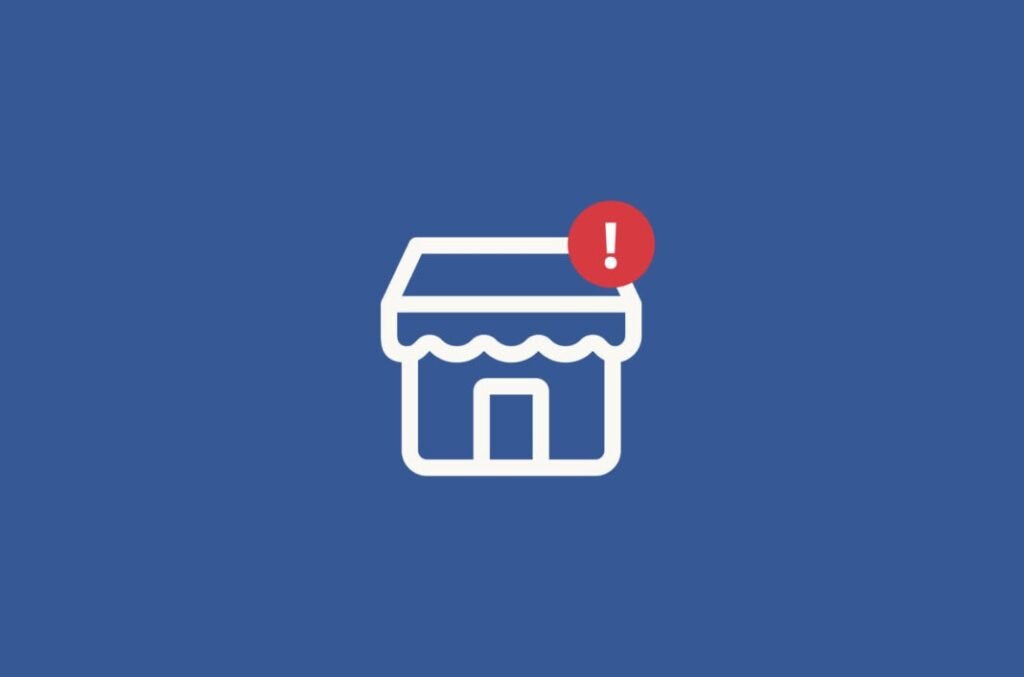
A few factors make Facebook Marketplace attractive to scammers:
- Lack of seller verification – Anyone can create a Facebook account and start selling
- In-person transactions – Many sales occur in cash, leaving no digital trail
- Limited buyer protection – Protections are not as robust as other platforms like eBay
- Informal feel – The casual nature can cause people to let their guard down
However, understanding the risks and Facebook’s buyer protection policies can help you avoid many common scams.
Let’s take a closer look at how Facebook Marketplace’s Purchase Protection works.
What is Buyer Protection on Facebook Marketplace?

Facebook Marketplace’s Purchase Protection is a set of policies designed to protect buyers when purchasing eligible items through the platform’s checkout system. If an order never arrives or is significantly different than described, buyers may qualify for a refund.
It’s important to note that Purchase Protection is not a guarantee. There are limitations and eligibility requirements that buyers and sellers should understand. We’ll cover those details throughout this article.
Conditions to Qualify For Purchase Protection
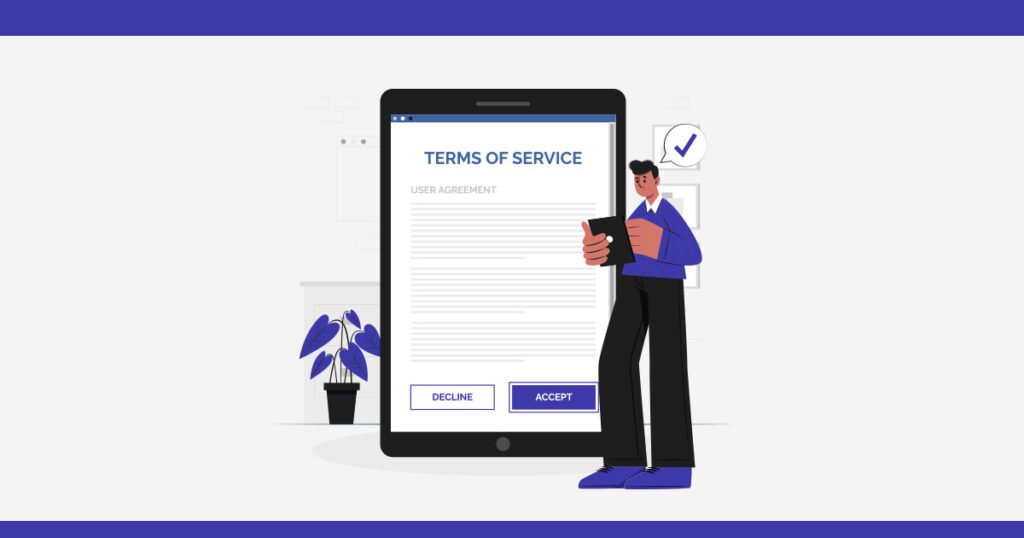
What Are the Requirements For a Buyer to File a Refund Claim?
To be eligible for a refund under Facebook’s Purchase Protection policies, the following criteria must be met:
- The item was purchased using Facebook’s checkout system with Facebook Pay
- The order was marked as “shipped” by the seller but never arrived, or it arrived significantly different than described
- The buyer first attempted to resolve the issue with the seller through Facebook Messenger
- The buyer filed the claim within 45 days of the delivery date, or within 60 days for unauthorized purchases
What Transactions Are Eligible For Purchase Protection?
Only purchases made through Facebook checkout with Facebook Pay are covered.
The following transactions are not eligible for Purchase Protection:
- Local pickups or in-person transactions
- Purchases made through third-party sites or links
- Orders placed through Facebook Messenger or other messaging platforms
- Vehicle purchases
- Purchases over $2000, including tax and shipping
- Perishable items, custom products, real estate, and financial products
How Does Facebook Marketplace Buyer Protection Work?
If a buyer encounters an issue with a covered purchase, they must first attempt to resolve it directly with the seller via Facebook Messenger. If the seller is unresponsive or unwilling to issue a refund, the buyer can file a claim with Facebook within 45 days of delivery.
To file a claim, the buyer provides details about the issue, such as the order not arriving or the item being significantly different than described. They may also be asked to provide photos or other documentation to support the claim.
Facebook will notify the seller of the dispute and allow them to respond with their perspective and any evidence. Facebook’s review team will evaluate the information from both parties and decide to issue a refund or deny the claim. If approved, the buyer will receive a refund and the funds will be withdrawn from the seller’s payout.
The claim review process typically takes 2-3 business days. If the dispute is complex or requires additional information, it may take up to 2 weeks to resolve.
Common Issues Covered by Buyer Protection
What Types of Issues are Covered by Facebook Marketplace Buyer Protection?
Facebook’s Purchase Protection covers two main issues:
- Item not received – If a buyer places an order and it never arrives, they may be eligible for a refund. The seller must mark the order as “shipped” and provide tracking information showing the package was delivered to the buyer’s address.
- Item significantly different than described – If the item arrives but is materially different than what was described in the listing, the buyer may qualify for a refund. This could include the item being damaged, the wrong size/model, or missing major components or accessories shown in the photos.
What Happens if the Item is Not Received or is Significantly Different From the Description?
If a buyer does not receive their order or it arrives substantially not as described, they should first reach out to the seller to try to resolve the issue. Many sellers are willing to work with buyers to find a solution, such as a return and refund or partial discount.
However, if the seller does not respond or refuses to issue a refund, the buyer can file a claim with Facebook. They will need to provide details about the issue and any relevant documentation, such as photos of the damaged item or screenshots of the listing description.
If Facebook determines the claim is valid, they will issue a full refund to the buyer and deduct the amount from the seller’s payout. In some cases, Facebook may also remove the seller’s listing or account for violating their commerce policies.
Seller Responsibilities and Rights
What Do Sellers Need to Know About Buyer Protection?
Sellers play an important role in ensuring smooth transactions and avoiding buyer protection claims.
Here are some key things for sellers to keep in mind:
- Provide accurate and detailed descriptions of the item, including any flaws or damage
- Use clear, well-lit photos that show the actual item for sale
- Communicate promptly with buyers and try to resolve any issues directly
- Mark orders as shipped and provide valid tracking as soon as the item is sent
- Ensure the item is properly packaged to avoid damage in transit
- Familiarize yourself with Facebook’s commerce policies and prohibited items list
- Respond promptly if a buyer protection claim is filed against one of your orders
How Can Sellers Respond to Claims?
If a buyer files a purchase protection claim, Facebook will notify the seller via email and Facebook notifications. The seller can respond to the claim from their support dashboard with their perspective on the situation and any relevant evidence, such as:
- Tracking information showing the item was delivered to the buyer’s address
- Photos or videos of the item prior to shipping to show its condition
- Screenshots of Messenger conversations with the buyer about the order and issue
- A copy of their refund policy as stated in the listing or Messenger chats
Facebook will review the information provided by both the buyer and seller to make a decision on the claim. It’s important for sellers to respond promptly and professionally to all claims and to provide as much documentation as possible.
In some cases, Facebook may determine neither party is at fault, such as if an item is damaged by the shipping carrier. The claim outcome depends on the specific situation and evidence.
Limitations and Exclusions
What Are The Limitations of Facebook Marketplace Buyer Protection?
While Facebook’s buyer protection policies provide some peace of mind, there are significant limitations to be aware of:
- Purchases must be made through Facebook’s checkout system – Local pickups, cash payments, and transactions outside of Facebook are not covered.
- Claims must be filed within 45-60 days of delivery – Buyers cannot request a refund for issues that arise after this window closes.
- Refunds are limited to the original purchase price – Facebook does not reimburse return shipping costs or offer any additional compensation for issues.
- Repeat claims or abuse may result in loss of coverage – Buyers who file frequent claims or engage in fraudulent behavior may have their protection suspended.
- Decisions are made at Facebook’s sole discretion – Buyers and sellers must abide by Facebook’s final decision on a claim, with limited options for appeal.
Are There Any Exclusions to the Protection Policy?
Yes, Facebook Marketplace’s Purchase Protection does not cover several types of transactions, including:
- Vehicles, including cars, motorcycles, boats, and RVs
- Real estate rentals or purchases
- Custom or made-to-order items
- Perishable goods, animals, and food products
- Financial products, including loans, investments, and insurance
- Event tickets or vouchers
- Gambling or lottery purchases
- Anything prohibited by Facebook’s commerce policies
For these types of purchases, buyers must rely on other forms of protection, such as a third-party escrow service, purchase contract, or payment dispute process. It’s important to thoroughly research the seller and understand the risks before making a large or complex purchase.
How to Avoid Scams on Facebook Marketplace?
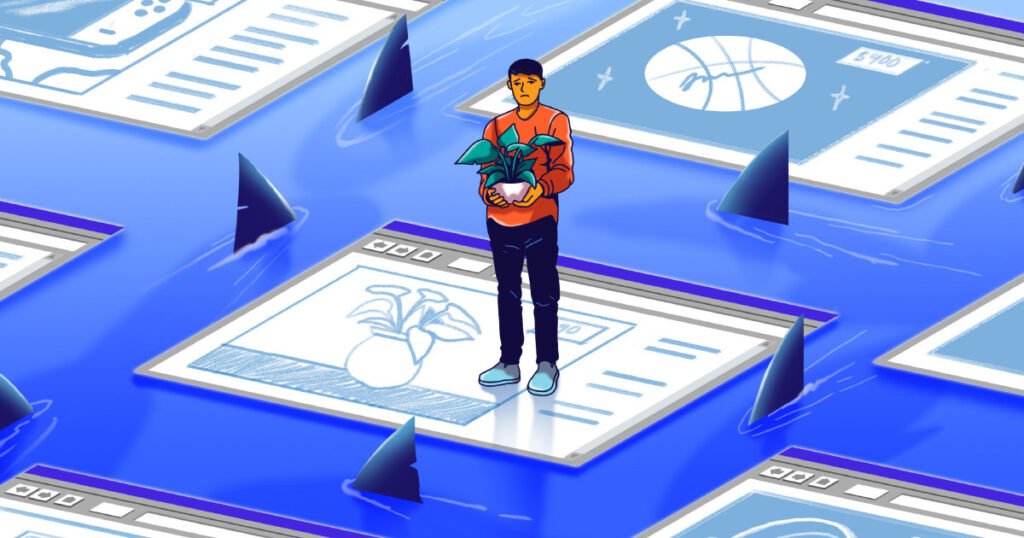
While Facebook’s Purchase Protection provides some security, it’s ultimately up to buyers and sellers to stay vigilant and take precautions to avoid scams.
Here are some tips to keep in mind:
- Only Communicate Using Facebook: Scammers may try to lure you off the platform to avoid detection. Keep all conversations within Facebook Messenger so there is a record. Be wary of anyone who insists on texting, emailing, or calling outside of Facebook.
- Avoid anything too good to be true: If a deal seems suspiciously cheap or easy, it probably is. Scammers often use low prices or hard-to-find items as bait. Research the fair market value and be skeptical of outliers.
- Meet in a Safe, Public Place: For local pickups, choose a well-lit public spot like a police station or busy parking lot. Consider bringing a friend and letting others know where you’re headed before meeting a stranger.
- Don’t Pay Until You Have The Item: For in-person sales, don’t hand over payment until you can inspect the item and ensure it matches the description. If a seller objects, it could be a red flag.
- Avoid High-Pressure Buyers or Sellers: Be cautious of anyone who tries to rush you into a sale or purchase without allowing time for due diligence. Scammers often create a false sense of urgency.
- Look For Negative Reviews: Check the buyer or seller’s Facebook profile for past transaction reviews. Multiple complaints about undelivered items or poor quality may indicate a scam pattern.
- Report Scammers: If you find a suspected scammer, report them to Facebook immediately. This helps protect others and allows Facebook to take action, such as banning the offender.
Tips For Buyers and Sellers on Facebook Marketplace
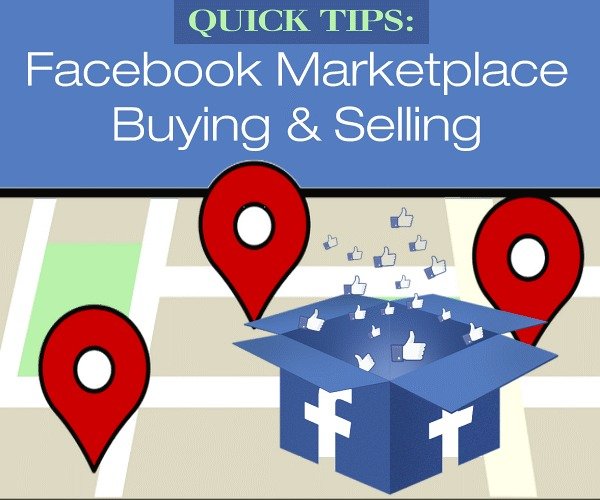
In addition to the anti-scam guidance above, here are some general tips for successful buying and selling on Facebook Marketplace:
For buyers:
- Always compare prices across multiple listings and platforms
- Don’t be afraid to negotiate, many sellers are willing to accept reasonable offers
- Ask for additional photos or details if a listing seems incomplete
- Verify the item is working properly before completing a local purchase
- Leave an honest review after the transaction to help inform other buyers
For sellers:
- Be proactive in communicating with potential buyers
- Provide ample photos and details in your listing to set expectations
- Price items competitively based on their age and condition
- Be clear about your accepted payment methods and refund policy upfront
- Package items securely and ship promptly after receiving payment
- Respond professionally to any buyer questions or concerns
FAQ’s:
Can I Get My Money Back If Scammed on Facebook Marketplace?
If you paid through Facebook’s checkout system, you may be able to get a refund by filing a Purchase Protection claim. For other payment methods, you may need to dispute the charge with your bank or payment provider. Report the scam to Facebook as well.
How Do I Verify a Buyer on Facebook Marketplace?
Look at the buyer’s Facebook profile for red flags, like a newly created account, no photo, or minimal activity. Consider their messaging style and eagerness to pay above asking price. For high-value items, you may want to request a phone call or video chat to further vet them.
Should I Give Someone My Address on Facebook Marketplace?
For local sales, it’s best to meet in a public place rather than your home. If you must share an address for shipping or pickup, consider using a PO box, work address, or friend’s place instead of your residence.
How Does Facebook Marketplace Handle Disputes Between Buyers and Sellers?
Facebook will review the claims and evidence submitted by both parties and decide to issue a refund or deny the claim. The decision is final, although buyers may be able to dispute the charge with their payment provider in some cases.
Can Buyers Get Refunds or Returns on Items Purchased Through Facebook Marketplace?
For eligible purchases, buyers can request a refund if the item never arrives or is significantly different than described. Standard returns for simply changing your mind are at the seller’s discretion based on their stated return policy.
Is it Safe to Make High-Value Purchases on Facebook Marketplace Without Buyer Protection?
There are always risks when making large purchases from private sellers online. If Facebook’s Purchase Protection does not apply, consider using a secure payment method like PayPal Goods & Services or an escrow service. Thoroughly research the seller and item first.
Conclusion
Facebook Marketplace is a handy way to buy and sell nearby. Understand its rules to prevent scams. Use Facebook checkout, meet publicly, and watch for warning signs to stay safe. If a problem occurs, you might get a refund through Facebook’s buyer protection for undelivered or misrepresented items. Users must still be cautious.
Know the Marketplace rules well. Verify buyers and sellers to avoid scams. Be alert, trust your instincts, and back off if something seems too good to be true. We hope this overview of Facebook Marketplace’s protections helps you navigate it.
Questions about online safety? Contact the Social Think team for advice and support anytime you need it.

